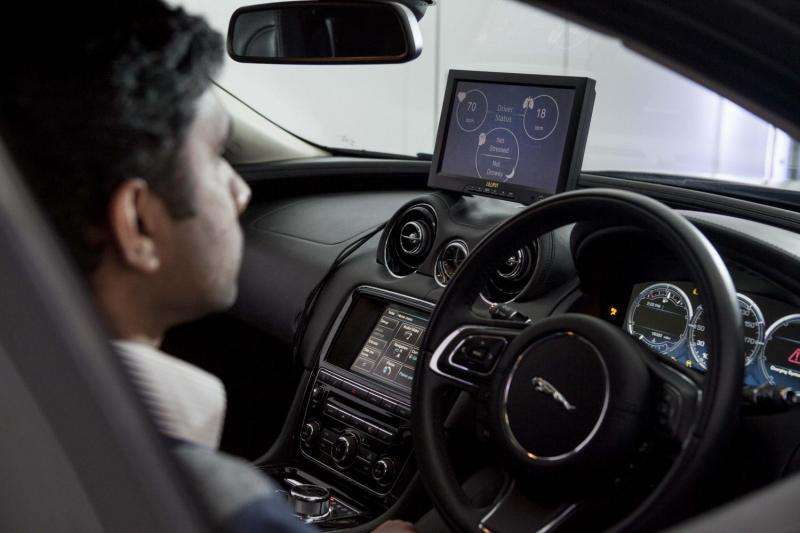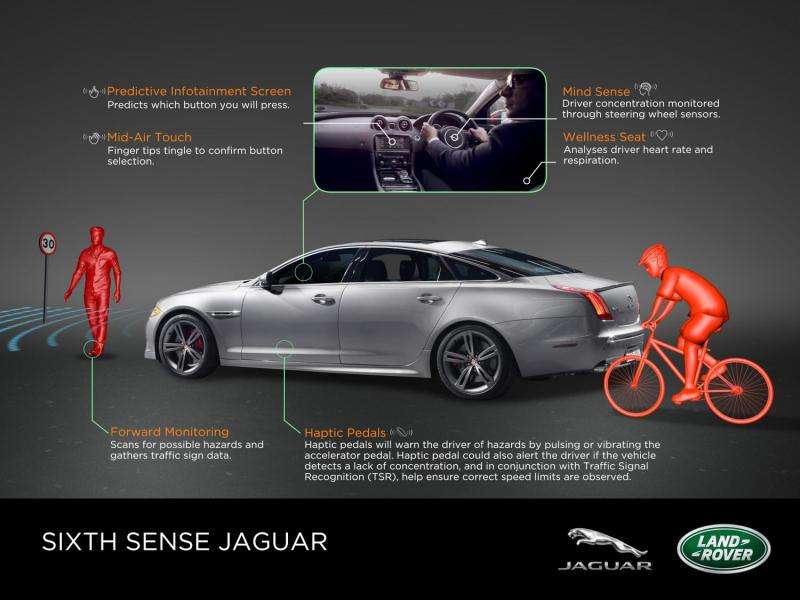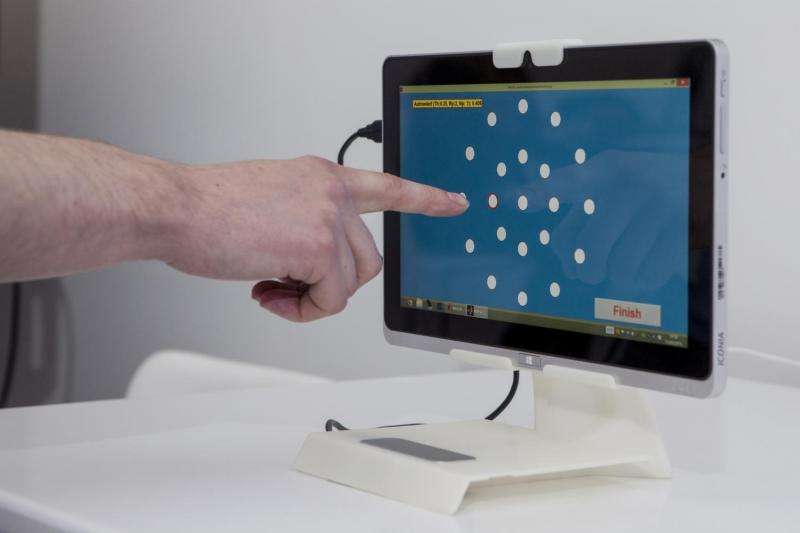June 20, 2015 weblog
Jaguar Land Rover tech has car monitoring driver's concentration

A fact sheet from SWOV Institute for Road Safety Research, the Netherlands, described the kinds of risky problems that occur when the driver is not paying attention. When drivers are absent-minded, this may cause longer reaction times, less adequate observation of the environment, and later and more abrupt braking. Lack of focus endangers the driver's safety and that of other road users.
Jaguar Land Rover is set to make a difference; they aim to help drivers reduce such risks with a range of road safety technology research projects. Even if a driver's eyes are on the road, said the company, "a lack of concentration or a daydream will mean the driver isn't paying attention to the driving task. They may miss a warning icon or sound, or be less aware of other road users so we are looking at how we could identify this and prevent it causing an accident."
Dr Wolfgang Epple, Jaguar Land Rover director of research and technology, said, "The car is becoming more intelligent and more able to utilize cutting-edge sensors. These research projects are investigating how we could exploit this for the benefit of our customers and other road users."
They are finding answers to the question: How do we reduce the amount of time the driver's eyes are off the road while driving?
They are tackling ways to reduce the kinds of accidents that occur when drivers are not only distracted but stressed and not giving road concentration its due.

The company's projects are taking technology cues from sports, aerospace and medicine.
The company's Mind Sense project is researching a way to watch for driver concentration by measuring brainwaves. Epple considers this a key piece of the company's new research—how they can measure brainwaves to monitor if the driver is alert and concentrating on driving. Epple discussed this further: The human brain continually generates four or more distinct brainwaves at different frequencies. "By continually monitoring which type of brainwave is dominant, an on-board computer could potentially assess whether a driver is focused, daydreaming, sleepy, or distracted."
In the event that poor concentration was detected, then the steering wheel or pedals could vibrate to raise awareness "and re-engage" the person with driving.
The team does not plan on requiring the driver to wear a headband for brainwave monitoring. Instead, Jaguar Land Rover is investigating detection of brainwaves through the hands, via sensors embedded in the steering wheel. User trials are under way; the company wants to collect more information on the brainwaves identified through steering-wheel sensors. The team will involve neuroscientists to verify the results.

On to still more projects: The Wellness Seat in a Jaguar XJ is looking out for driver health and stress by analyzing heart rate and breathing. This would be a medical-grade sensor embedded in the seat. The sensor was developed for use in hospitals, but was adapted for in-car use. It picks up vibrations from the driver's heart beat and breathing.
A haptic accelerator pedal could communicate hazards to the driver. "To create these sensations in the accelerator pedal, an actuator sits at the top of the pedal arm and allows for vibrations or pulses to be passed through to the foot of the driver. The technology also uses a torque motor which can create resistance in the pedal feel. This resistance could be used to notify the driver that they are pushing the accelerator through a speed limit."
What if the driver was crawling in traffic? A timely warning through the accelerator could prevent the driver from bumping into the car in front.
Another reason to think about safety-inducing technologies is rooted in the autonomous car. Dr. Epple noted there will be instances where the autonomous car needs to hand control back to the driver, and the car could assess risks in doing so. "To do this safely the car will need to know if the driver is alert and well enough to take over. So our research team is looking at the potential for a range of driver monitoring technologies to give the car enough information to support this decision."
More information: newsroom.jaguarlandrover.com/e … e_monitoring_170615/
© 2015 Tech Xplore




















